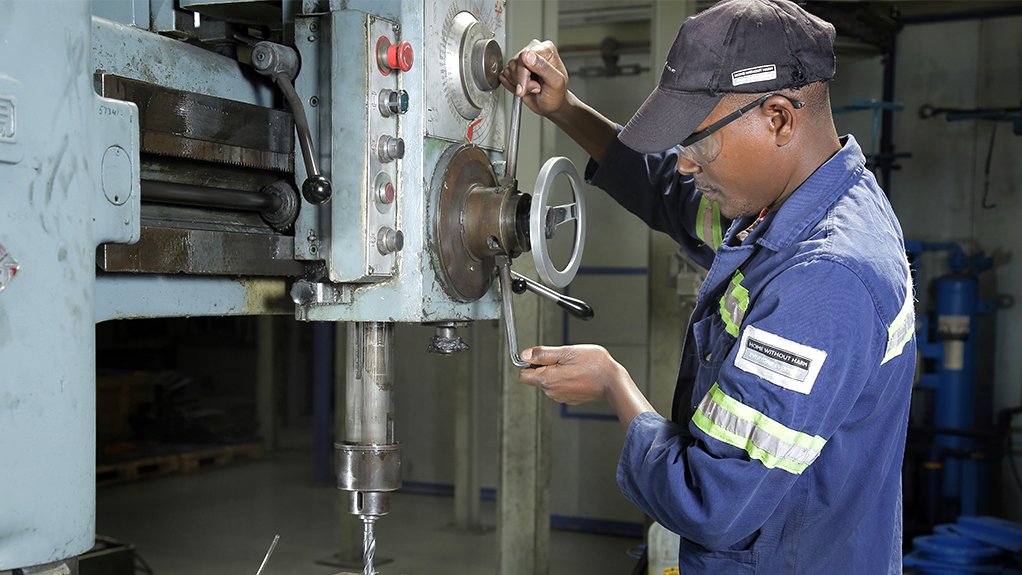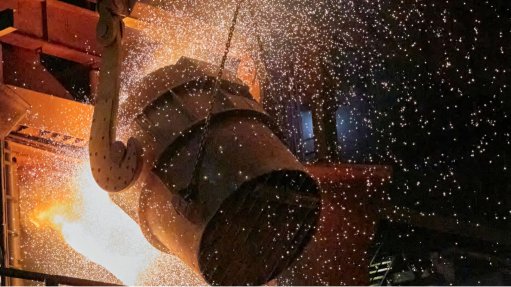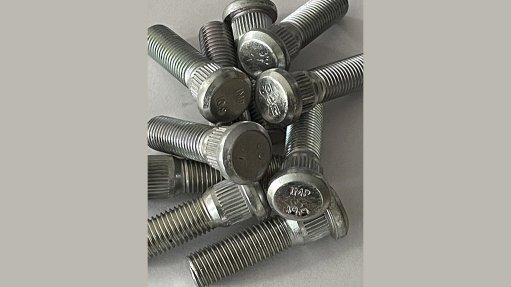Valves manufacturer aims for Africa expansion



TUMI TSEHLO Steel industry strike has tremendous impact on industry
DOING THE WORK DFC aims to collaborate with suppliers in African countries
Valve manufacturer Dynamic Fluid Control (DFC) aims to extend its global footprint to include a stronger presence in the Democratic Republic of Congo (DRC) through partnerships with local DRC suppliers.
The South Africa-based company will primarily focus on supplying valves in the thriving DRC mining industry to eventually move towards supplying mining industries in Ghana, Kenya and Tanzania as opportunities arise.
DFC was acquired by 100% black-owned investment company Copaflo in 2019, along with DFC’s operations in South Africa, Australia, Brazil, Finland and the US.
“We have found that the geographical locations of our operations have provided a good sense of diversification of revenue sources. While the South African economy has not been the most vibrant, the economies we operate in have provided DFC with better opportunities for growth than the South African economy,” explains DFC CEO Tumi Tsehlo.
Along with Brazil, the DRC is one of the fastest-growing mining countries. The DRC provides a big opportunity for DFC to become a significant supplier in its mining industry-related market.
Tsehlo adds that DFC is looking for good partnerships with people who have a shared vision. Through such partnerships, DFC can have operators “on the ground”, and local people who are knowledgeable and are seeking strong partnerships with significant companies outside the DRC.
“Valves are not produced in DRC, it has to come from either South Africa or from somewhere else in the world such as China, Canada, the US or Europe. “We believe that there’s an important business case for locals to partner more with other African companies,” adds Tsehlo.
He elaborates that intra-African trade needs to be promoted.
“While various governments have agreed on the need for increased intra-African trade, the legislative environment needs to be further developed to enable businesses to have more trade opportunities.”
Tsehlo explains that such trade agreements can be difficult to work out and get them to a point of implementation. The process involved is time consuming, which is detrimental to the cause because businesses need quicker results to move into various African markets.
“We would want to actually behave in a manner that demonstrates the direction in which we would like things to move, such as finding solid partners in the places where we want to establish ourselves.”
While the DRC government is “pushing hard” for more intra-African trade, there are still challenges that need to be addressed such as the rules of origin provisions.
Rules of origin provisions and criteria are often challenging to navigate, especially when encountering products that are heavily subsidised by the products’ country of origin such as China.
There is a need for careful vigilance to ensure that heavily subsidised products, which are, consequently, cheaper, do not eventually enter South Africa through other African countries and vice versa.
Intra-African trade also needs to be fully evaluated because rather than having an import-export business, the trade should address the need to ensure that an increasing proportion of the value created stays in Africa and is circulated among Africans, explains Tsehlo.
Challenging Conditions
While DFC aims to expand its reach, Tsehlo acknowledges Covid-19’s significant impact on the business.
“We could not produce for about a three-week period and then we had to slowly start ramping up production.”
It took DFC about three months to reach a position where it was comfortable with having the right protocols in place to operate safely in the factory and, even after that, demand took quite a while to return, he adds.
Covid-related restrictions also resulted in longer shipping times, with finished products staying at port for a number of weeks before being shipped.
The steel industry strike by trade union National Union of Metalworkers-affiliated workers, which started on October 5, has also had a “tremendous impact” on the industry, with the full scale of the impact still to be assessed.
“Our factory has been shut down for the duration of the strike and we are in a very vulnerable location, we cannot afford to keep the doors open to allow people to come in and work because it will expose them to attacks.”
He adds that the violence exhibited during the strike is more than “extremely concerning” because while every person has a right to strike, every person also has the right to work, and to have that right protected.
The level of violence workers would face by choosing to continue working instead of joining the strike infringes on those workers’ right to work, Tsehlo concludes.
Article Enquiry
Email Article
Save Article
Feedback
To advertise email advertising@creamermedia.co.za or click here
Announcements
What's On
Subscribe to improve your user experience...
Option 1 (equivalent of R125 a month):
Receive a weekly copy of Creamer Media's Engineering News & Mining Weekly magazine
(print copy for those in South Africa and e-magazine for those outside of South Africa)
Receive daily email newsletters
Access to full search results
Access archive of magazine back copies
Access to Projects in Progress
Access to ONE Research Report of your choice in PDF format
Option 2 (equivalent of R375 a month):
All benefits from Option 1
PLUS
Access to Creamer Media's Research Channel Africa for ALL Research Reports, in PDF format, on various industrial and mining sectors
including Electricity; Water; Energy Transition; Hydrogen; Roads, Rail and Ports; Coal; Gold; Platinum; Battery Metals; etc.
Already a subscriber?
Forgotten your password?
Receive weekly copy of Creamer Media's Engineering News & Mining Weekly magazine (print copy for those in South Africa and e-magazine for those outside of South Africa)
➕
Recieve daily email newsletters
➕
Access to full search results
➕
Access archive of magazine back copies
➕
Access to Projects in Progress
➕
Access to ONE Research Report of your choice in PDF format
RESEARCH CHANNEL AFRICA
R4500 (equivalent of R375 a month)
SUBSCRIBEAll benefits from Option 1
➕
Access to Creamer Media's Research Channel Africa for ALL Research Reports on various industrial and mining sectors, in PDF format, including on:
Electricity
➕
Water
➕
Energy Transition
➕
Hydrogen
➕
Roads, Rail and Ports
➕
Coal
➕
Gold
➕
Platinum
➕
Battery Metals
➕
etc.
Receive all benefits from Option 1 or Option 2 delivered to numerous people at your company
➕
Multiple User names and Passwords for simultaneous log-ins
➕
Intranet integration access to all in your organisation



















